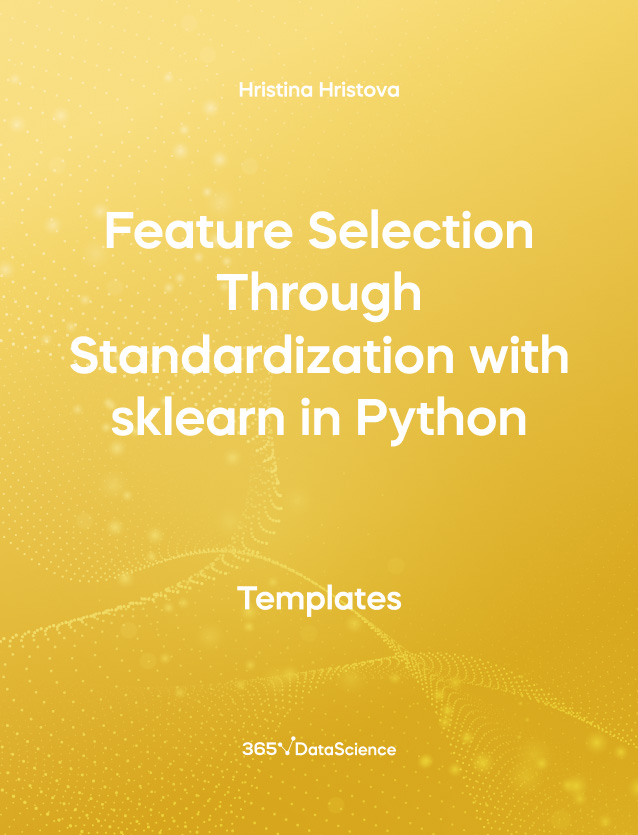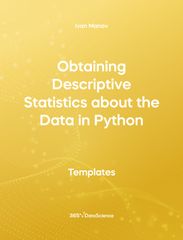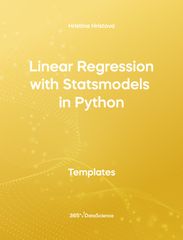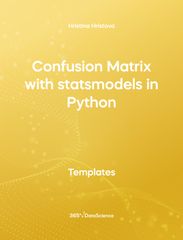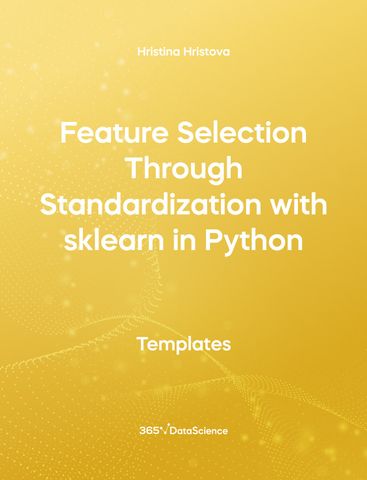Feature Selection Through Standardization with sklearn in Python Template
The following Feature Selection Through Standardization with sklearn in Python template shows how to solve a multiple linear regression problem with two continuous features. These features are standardized using a StandardScaler() object. After fitting the model to the scaled data, we construct a summary table in the form of a dataframe. It stores the features as well as their biases and weights (the machine learning jargon for intercepts and coefficients). The irrelevant features are automatically penalized by a small magnitude of the weight. Such a procedure is known as feature scaling through standardization. Open the .ipynb file using Jupyter notebook. Another related topics is Feature selection through p-values with sklearn in Python. You can now download the Python template for free.
Feature Selection Through Standardization with sklearn in Python is among the topics covered in detail in the 365 Data Science program.

Who is it for?
This is an open-access Python template in .ipynb format that will be useful for anyone who wants to work as a Data Analyst, Data Scientist, Business Analyst, Statistician, Software Engineer, and anyone who works with Python.
How can it help you?
More features don't necessarily give you better results. Problems can occur whenever independent variables are correlated with each other and don't bring new information to the table. Not only that, but such issues could lead to the so-called curse of dimensionality. This template can be used whenever you need to remove the irrelevant features. In this example, this is done through standardizing the dataset.
